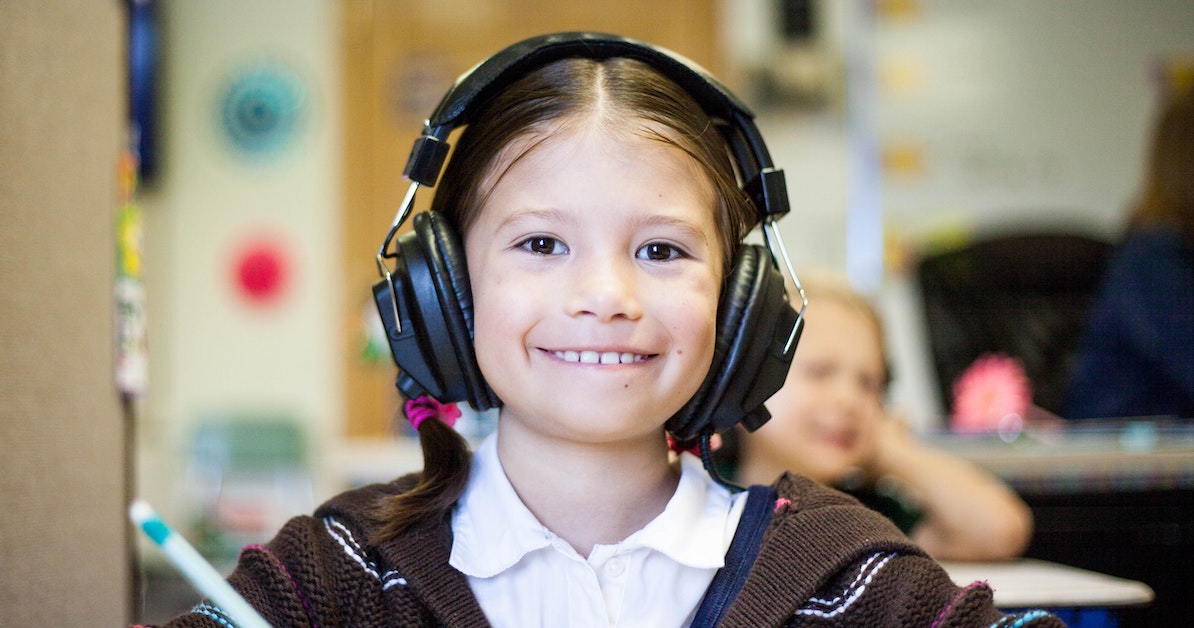What is CAPD?
It is coming up to the one year anniversary of our adventures into exploring auditory processing differences.
People with Central Auditory Processing Disorder (CAPD) have average to acute hearing, but sometimes struggle with processing sounds.
The particular kind of CAPD that my three children and I experience relates to difficulty with understanding speech in background noise. Of course, we didn’t understand all of this until after we had visited The Able Kids Foundation in Fort Collins, Colorado.
Able Kids is currently the only place in the world that makes a hearing filter to help people with CAPD. They describe the filter as helping to synch up the sounds from each ear in the brain.
At Able Kids, they talk about “Super Hearing,” and this is a good way to describe how we experience CAPD – we hear everything. And it’s not easy to tune out even quiet noises. There are no ticking clocks in our home for a reason.
It turns out that CAPD is quite common in neurodivergent (ND) people. The hyper-wiring that leads to neurodivergence also appears correlated with CAPD. Is it really a disorder to hear everything? I don’t think so.
This is yet another area that someone will be called “disordered” simply because their experience is different than average.

Is Having Super Hearing Really a “Disorder”?
Like most human traits, CAPD has advantages and disadvantages.
There are many times when having extremely sensitive hearing and a brain that pays attention is an advantage. Historically, it would be a good thing to be aware of small sounds while out gathering food.
The sounds in natural environments provide a lot of useful feedback for assessing safety, finding water, and locating prey. Someone with CAPD would be good at all of these things.
Of course, in our modern noisy environments, “Super Hearing” can easily become a stumbling block.
Children with CAPD who spent their days in a classroom with twenty other kids are going to have a harder time understanding the teacher and following directions.
In a home learning environment, we have a lot more control over the sound landscape. Of course, our kids are also able to move their bodies and make noises as needed, which can itself be distracting in families with multiple kids!
Connections with Polyvagal Theory
The audiologists at AbleKids have shared that CAPD is extremely common in the Gifted population, as well as the wider neurodivergent population.
Based on my study of polyvagal theory, I theorize that CAPD is more common in these groups because they have hypersensitive nervous systems. Gifted and neurodivergent brains are constantly scanning their environments for threats, and as Zach Morris describes below, that can make it harder to attune to the human voice when there’s a lot going on.
“So for example, when I get kicked into that sympathetic system, my ears start priming myself to be more attuned to low frequencies of sound. Because those are sounds, those are predator sounds, those are sounds of danger and threat. And so I’ve already got kicked into that part of my system to be like, be aware of threat. There are threats out here. And so my ears actually get more attuned to being able to hear those sounds, than hear things like the human voice. So that person that’s like asking me to pay attention or do something, it’s like, I actually have a harder time hearing it. So I have a harder time making sense of it, processing it, integrating it, right. “
Zach Morris on the TILT Parenting Podcast
Behaviors Associated with CAPD
According to the Able Kids Website, below are some of the common behaviors observed in people with CAPD.
- Difficulty following directions
- Mishears what is said
- Sensitive to loud sounds
- Easily distracted, frustrated, and/or confused
- Overwhelmed in noisy places
- Exhibits a short attention span
- Struggles to complete assignments
- Easily upset in new situations
- Labeled as an underachiever or daydreamer
- Experiences anxiety or tension
- Exhausted at the end of the school/work day
- Talks excessively
- Lacks self-confidence
- Forgetful
- Shows restlessness and has problems sitting still
- Difficulty with transitions and/or changes in routine
Out of these, here are the behaviors I noticed in my own kids:
- Sensitive to loud sounds
- Overwhelmed in noisy places
- Experiences anxiety or tension
- Difficulty with transitions and/or changes in routine
Note that these are pretty common traits in sensitive kids.
At the time, there really was nothing that made it a clear “slam dunk” that my kids experienced CAPD.
They were certainly sensitive to sound. However, they did not show the traits that might get a child referred for CAPD testing in school – namely:
- Difficulty following directions
- Mishearing what is said
Very bright kids can compensate for a lot. Parents of gifted children need to know that traits like CAPD, dyslexia, ADHD, autism, and more can look very different in this population.
The things we can observe in these kids often do not match the checklist screeners for the diagnoses that are appropriate. We have to get at their internal experiences when we are trying to understand the complexity of their brains.
